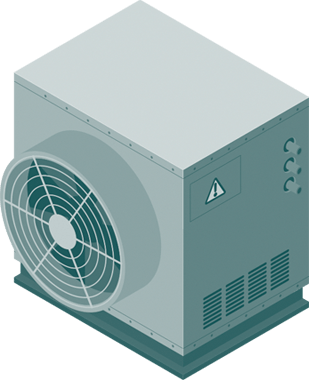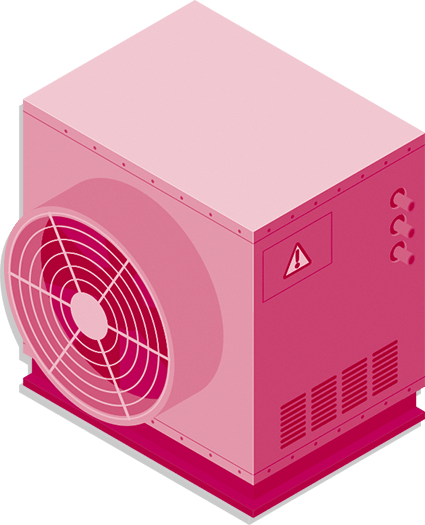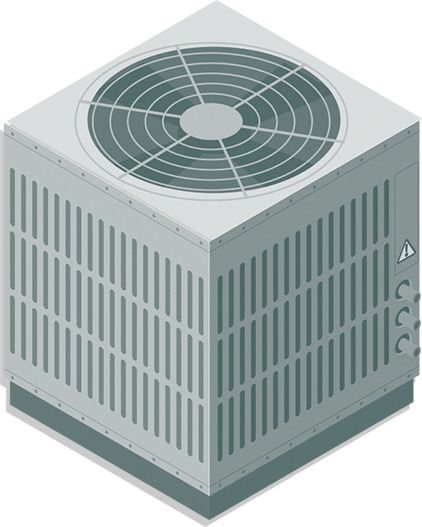

Brought to you by
Sponsored by

The Future of Refrigeration
in a Low-GWP World
Learn how the transition to next-gen refrigerants is poised to affect the HVAC industry for years to come
understanding the aim act
The 2020 AIM Act gave the Environmental Protection Agency (EPA) the authority to dramatically phase down the consumption and production of high-GWP HFC refrigerants in the U.S. over the next 15 years.

This includes R-410A, which is found in just about every type of residential and commercial air conditioning equipment in the U.S.




Global
Warming
Potential
GWP:

The potency of a greenhouse gas compared to CO2, which has a GWP of 1.
The HIGHER the GWP of a given gas, the more POTENT the gas is relative to warming the planet.



R-410A: GWP of
R-454B: GWP of
R-32: GWP of
PFAS-free
A 700 GWP limit will be required for many types of new residential and light commercial air conditioning equipment, starting January 1, 2026.






The AIM Act reduces the production/import and usage of HFCs in steps:
10%
Additional 30%
Total: 85% reduction
And a 700 GWP limit will be required for many types of new residential and light commercial air conditioning equipment, starting January 1, 2026.
The EPA estimates this transition will reduce greenhouse gas emissions by as much as 876 million metric tons on a CO2 equivalent basis through 2050.
That’s like taking 208 million cars off the road in the next 25 years.









What does the refrigerant transition mean for hvac?
Manufacturers are redesigning HVAC systems with next-gen refrigerants.
Read More
Distributors are
managing their inventory to comply with
sell-through dates.
Distributors are managing their inventory to comply with
sell-through dates.









Contractors are learning to work with A2L equipment.

And the entire HVAC industry needs to do more refrigerant reclaim to prevent a shortage.

Refrigerants like R-32 and R-454B are mildly flammable (A2L).
Due to the mildly flammable nature of A2Ls, safety features like refrigerant detection systems (RDSs) are being incorporated into new A2L residential/light commercial ducted split systems that contain more than 4 pounds of refrigerant.




Safety standard UL 60335-2-40
- Detects specific refrigerants at predetermined concentration thresholds
- Triggers mitigation measures if that threshold is exceeded
Factory-installed
Field-installed


While A2L work does require spark-free tools, the new systems are not all that different to install than R-410A systems.
A lot of the things that used to be required by the manufacturer — or what we consider to be best practices — are now required by code. They're mandatory, which they really should have been from the beginning.
-Jason Obrzut, director of industry standards and relations, ESCO Institute



Purging the circuit with an inert gas (e.g., nitrogen)

Evacuating the circuit

Leak and pressure testing the unit.
The Role of Reclaim
Despite the new equipment on the market, many customers will still be using HFC refrigerant to service legacy systems for years to come. But that supply is dwindling.

As of January 1, 2024, total production and consumption of virgin HFCs were reduced to
of the baseline for the United States —
and it’ll be down to
by 2036.


EPA is counting on reclaimed refrigerant to fill the gap. One of the biggest issues will be stepping up the recovery and reclamation of HFC refrigerants for servicing these systems.

We're excited as anybody about being able to grow our business, but it takes building space. It takes people. It takes equipment. It takes time for training, and the speed of the AIM Act and the speed of the phasedown seems to indicate they just want us to turn on a switch and do it. The supply of individual components and HFC to blend things out or to dilute contaminants is not available to reclaimers, so that makes our life harder. Working with the blends is much more difficult than reclaiming a single molecule of refrigerant like R-32 or R-134a. … We are working as fast as we can.
-Carl Grolle, owner, Golden Refrigerant
Read More: 10 THINGS TO KNOW ABOUT RECLAIM AND THE REFRIGERANT TRANSITION




Brought to you by
Sponsored by
IMAGE CREDITS:
Hero and vehicle illustrations: Araya Watt (iStock / Getty Images Plus); steps illustration: epic_fail (iStock / Getty Images Plus); multiple graphic illustrations: Hasan As Ari (iStock / Getty Images Plus); computer workstation illustration: EmBaSy (iStock / Getty Images Plus); quotation marks illustration: Tilegen (iStock / Getty Images Plus)











